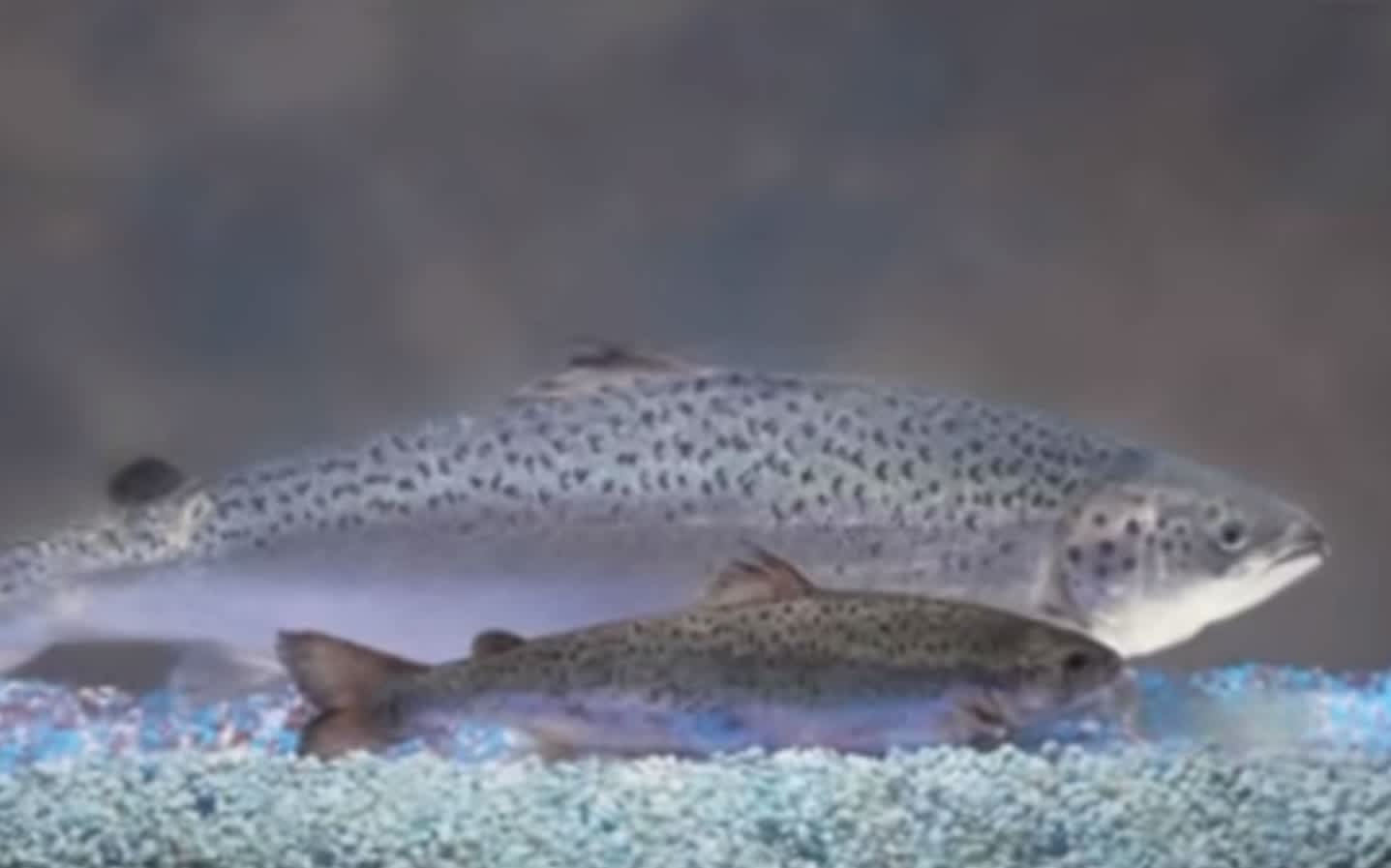Salmon the First Genetically Modified Animal Approved for Human Consumption
OutdoorHub Reporters 11.19.15

A recent decision by federal authorities may mean that if you want guaranteed natural salmon, you may just have to pick up your fishing rod.
On Thursday, the Food and Drug Administration (FDA) approved genetically engineered Atlantic salmon for human consumption, making it the first time that the FDA has granted approval to a genetically modified animal intended for food in the United States.
According to the agency, the approval was granted specifically to the salmon produced by biotech company AquaBounty Technologies, which grows at approximately twice the speed of regular farm-raised salmon.
“The FDA has thoroughly analyzed and evaluated the data and information submitted by AquaBounty Technologies regarding AquAdvantage Salmon and determined that they have met the regulatory requirements for approval, including that food from the fish is safe to eat,” said Bernadette Dunham, director of the FDA’s Center for Veterinary Medicine.
The FDA further stated that the genetic modifications did not appear to have a detrimental effect on the salmon and that the fish is just as nutritious as other farm-raised salmon.
The AquAdvantage salmon has an extra growth hormone taken from Pacific Chinook. The result of this is that on average, an AquAdvantage salmon will grow twice as fast as unaltered Atlantic salmon, making it much easier to produce.
AquaBounty CEO Ronald Stotish called the fish a “game changer” that will provide consumers with access to an affordable and sustainable way to get fish without harming the environment.
“The U.S. currently imports over 90% of all the seafood, and more specifically over 95% of the Atlantic salmon, it consumes,” AquaBounty stated in a press release. “AquAdvantage Salmon will offer the opportunity for an economically viable domestic aquaculture industry while providing consumers a fresh and delicious product.”
The salmon will not be produced on US soil. The FDA has specifically granted approval for the company to produce genetically modified salmon in only two facilities in Canada and Panama. The agency also said it will maintain regulatory oversight over the production and facilities, as well as conducting regular inspections to ensure that none of the altered fish ever escape into the ocean.
“These measures include a series of multiple and redundant levels of physical barriers placed in the tanks and in the plumbing that carries water out of the facilities to prevent the escape of eggs and fish. Finally, the AquAdvantage Salmon are reproductively sterile so that even in the highly unlikely event of an escape, they would be unable to interbreed or establish populations in the wild,” the FDA stated.
Despite all these safeguards many consumer and environmental advocacy groups opposed the Thursday decision. They say that the long-term effects of genetic modification are still poorly understood and the fish could pose a threat to both humans and the ecosystem.
“There’s no place on our dinner plates for genetically engineered fish,” Lisa Archer of Friends of the Earth told the Associated Press. “We will continue to work to ensure the market, from grocery retailers to restaurants, continues to listen to majority of consumers that don’t want to eat this poorly studied, unlabeled genetically engineered fish.”
Other groups pointed out that under current laws, manufacturers of the modified salmon are not required to label the fish differently. Although companies can voluntarily label their products as genetically modified, the lack of hard requirements means that customers can buy altered fish without knowing it. The same is true of genetically modified crops, many of which are already on the market. A number of other modified animals are awaiting approval by the FDA before they can be sold for human consumption.

